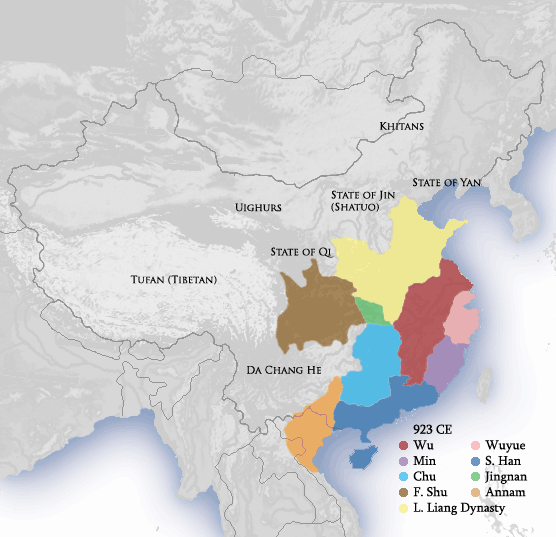Japan, Taiwan and korea succeed despite that disadvantage. Minerals, Oil, Metals, etc is not necessary for success. As for secure borders, population of North China Plain would overwhelm and negate threat from Independent Tibet, Xinjiang, or Mongolia. The Key of China is North China Plain, which having multiple rivers and fertile soil to generate hundred of millions people. It also didn't have good border once naval tech reach certain point, frequently making it united again even after period of civil war. As long as China had unified North China Plain, it would be difficult to keep it power weakened permanently.
I think this is true in the pre-modern age, but having a large population by itself is insufficient for success in the 19th and 20th centuries. Japan failed to become a superpower or even a great power in the true sense; also, its successes were fairly unique and had much to do with the fact that it is an archipelago. Korea and Taiwan too had very specific historical situations that led to their economic rise.
Let's not forget that China suffered several periods of intense disunification in antiquity:
- Warring States era: c. 300 years (500-220 BC)
- Northern and Southern Dynasties: 200-300 years (320-590 AD)
- Ten Dynasties and Five Kingdoms: 80 years from Tang collapse until the victory of the Song Dynasty in late 900s.
In more recent times, the Warlord period saw a great deal of regionalization. Chinese nationalism was not a sure thing, and it could well have failed and been replaced by regional patriotism had foreign powers like Russia or Japan had greater success in tearing off parts of the country and knocking down the fledgling attempts at modern government in China proper.
Sure, in ancient times the geography of China made reunification relatively easy compared with Europe. But in the modern age, once concepts like Westphalian agreements and civic nationalism, and technology like the atom bomb get developed, how is a regime that controls the North China Plain going to pull off invasions of Guangdong, Fujian, Sichuan, Shanxi, Manchuria, Mongolia, Xinjiang, Hunan, and other "renegade provinces?"
Look at OTL Taiwan. Not only do international agreements, trade, and alliances prevent its reunification by the PRC, but the people themselves mostly identify only as Taiwanese despite speaking a mutually intelligible version of Mandarin, and a plurality of those people hold this identify in explicit contrast to being "Chinese."
After 50 years of modern disunity, China would look much more like Europe (or the Middle East!), and the realities of today's geopolitics would keep it that way. People would think of the bygone dynasties as relics of the past, like the Ottoman or Roman empires.
